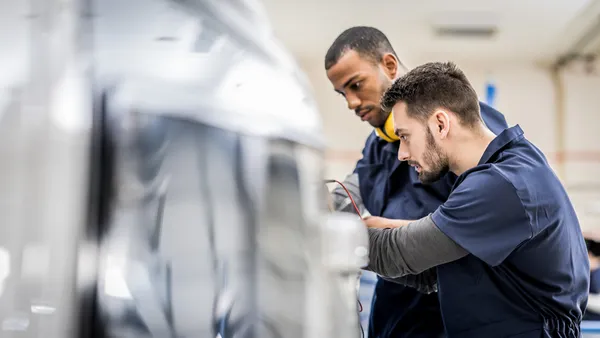Human Resources Business Partners (HRBPs) have a unique role that enables them to deeply connect with employees to best understand their needs and concerns. This connection empowers HRBPs to influence the employee experience, which in turn positions them to be effective change agents within organizations. As organizational changes happen faster than ever, HRBPs are essential in helping employees and leaders navigate the constant flux not only through proven change management practices but also by empowering them to continuously embrace change.
Organizational change is complex and requires constant attention and nurturing for a meaningful shift in behavior to occur. For this shift to take place with minimal disruption and disengagement to the employee experience, leaders must strive to create and protect a workplace in which all employees can thrive. HRBPs are essential in helping leaders and employees engage with one another in an ongoing environment of change. Ensuring HRBPs are well prepared to guide others in developing an ongoing relationship with change is key.
Developing Capability to Drive Change in Organizations
As described in The Evolution of the HR Business Partner, HRBPs’ focuses can vary, with some facilitating day-to-day administrative tasks and others acting as strategic partners to business leaders. The majority of HRBPs likely find themselves somewhere in the middle—they are making progress as they partner with leaders on talent management strategy but often find their bandwidth limited by tedious administrative tasks. The key to moving into the strategic space is to proactively engage with the business, and supporting leaders and employees through moments of change, large or small, presents a great opportunity to grow those partnerships.
As partnerships with the business become more strategic, HRBPs are better enabled to proactively serve as agents of change through greater visibility into long-term strategy. This way, they act as catalysts for transformation and serve as a conduit between HR and the business to drive employee engagement. While the ability to drive major change and transformation may feel aspirational for many, HRBPs at every level can play crucial roles in fostering a dynamic and responsive environment.
HRBPs can focus on activities and behaviors within their control that positively influence the employee experience and overall workplace culture. Whether an organization’s HRBP role is more transactional or strategic, HRBPs can leverage every employee interaction to nurture and support a workplace climate that is increasingly more open and receptive to change. Consider the following activities to enable positive change:
- Engage in open, honest communication and regularly seek employee feedback
- Treat each employee interaction as a valuable opportunity to gather feedback about where there are opportunities to clarify messages and provide additional education about current or proposed changes
- Identify opportunities to continuously improve processes to deliver better employee experiences
- Model and promote a growth mindset about current and proposed changes in the organization
- Examine their own relationship with change and seek opportunities to grow in skills related to helping themselves and others view change differently
Leveraging Transformational Moments
In addition to daily actions, HRBPs can use transformational moments in the business to make significant leaps in their development. Using a transformation’s change management needs as a teaching opportunity allows HRBPs to:
- Engage meaningfully with what is changing
- Make connections to how those changes will affect employees
- Gain immediate practice delivering key information to business partners to help them navigate the changes
Recently, ScottMadden helped a group of HRBPs leverage the implementation of a new HR model and system to begin growing their role from one that was initially more transactional to one that enabled a stronger partnership with leaders. The team used the transformational period to provide HRBPs with experiential learning opportunities, increased exposure to best practices, and access to a supportive network of peers and mentors. This ultimately helped grow their confidence and cultivate a more strategic relationship with the business.
HRBPs can use specific transformational moments to:
- Expand competencies in areas such as leader development and coaching, strategic planning and partnering, and storytelling through data analytics
- Grow strategic relationships by strengthening partnerships with key stakeholders across the organization to influence and drive change
- Enhance leadership capabilities by developing leadership skills that enable them to guide their teams through change with confidence and clarity
The Experience of Change Is Personal
Change is constant, and the change experience is personal for each employee, team, and company. In a world dominated by headlines and use cases for automation and AI, the ability to understand and champion the human experience cannot be understated. HRBPs already play significant roles in shaping the employee experience. With proactive collaboration, HRBPs can evolve from helping people manage specific changes to nurturing adaptability and ongoing receptiveness to change to drive innovation.










